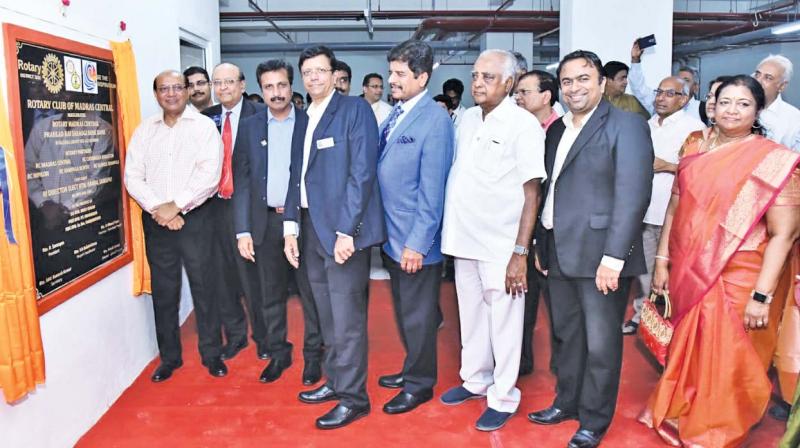India’s largest bone bank set up at Cancer Institute

Chennai: While blood banks and eye banks are relatively better known among the public, ‘bone banks’ are lesser or even unheard of by most of the people. With India’s largest ‘bone bank’ being set up at Cancer Institute (WIA) Adyar ‘bone banks’ are slowly becoming familiar with people.
A bone bank works just like a blood bank. It will procure, process and store bones. However, the issue of donor-recipient blood group matching is absent as in the case of blood donation. Only the size of the donor and recipient bones needs to be matched. The bones should also be harvested within 7 hours of the time of demise.
Bone defects are usually treated by reconstructing the damaged part with prosthesis. prosthesis surgeries are not only expensive but also involve a lot of complications and require revision surgeries periodically. however, performing a bone allograft(reconstructing a bone defect using bone) will not only avoid the after-effects of prosthesis surgery but also reduce the cost of the surgery by 5 to 10 times.
Speaking about the significance of bone banks, Dr.Chandra Kumar, Orthopedic Oncologist, Cancer Institute (WIA) says” The bones can be used by Orthopedic Surgeons and Dental Surgeons. Spine surgery, replacement surgeries, arthrodesis, revision surgeries, trauma, oncology, filling cavities in maxilla and mandible. Like for most other tissues, matching is not required for bone transplantation except for the size. Almost all orthopaedic hospitals perform hip and knee replacement surgeries. Few of them store the part of the bone that has been removed in such surgeries and use them as bone grafts in their hospital. But these cottage bone banks do not follow universal protocols and are not regulated”.
“There are presently two bone banks in the nation, one at TMH, Mumbai and the other at the M.S.Ramaiah MC, Bangalore. But, Rotary Madras Central Prahlad Rai Saraogi Bone Bank at Adyar cancer institute would potentially be the first of its kind in India to harvest bones from brain dead persons. This would translate into an increase in not only quantity but also quality and variety of bones available, thus catering to the diverse needs of the surgeons.” he added.
The bones would be processed at Indira Gandhi Centre for Atomic Research, Kalpakkam and would have a shelf life between three and five years depending on whether they are freeze-dried or deep frozen. Living donors, as well as brain dead donors, are eligible for donation. Approximately 40-50 patients per year are expected to benefit from the bone bank at Cancer Institute.
The bone bank was inaugurated in Cancer Institute (WIA) Adyar, Chennai by Rtn. Kamal Sanghvi, Rotary International Director-Elect in the presence of Rtn.Babu Peram, Rotary District Governor – RI 3232 Chennai, Past District Governor Rtn.SVRM Ramanathan, Rtn.Saranyan, President, Rotary Club of Madras Central and doctors from Cancer Institute, Adyar.
It was built at a cost of approximately Rs 80 lakh by Rotary Club of Madras Central through Rotary International Global Grant Program. Dr.Chandra Kumar, Orthopedic Oncologist, Cancer Institute (WIA) will be the Head of Bone Bank.

